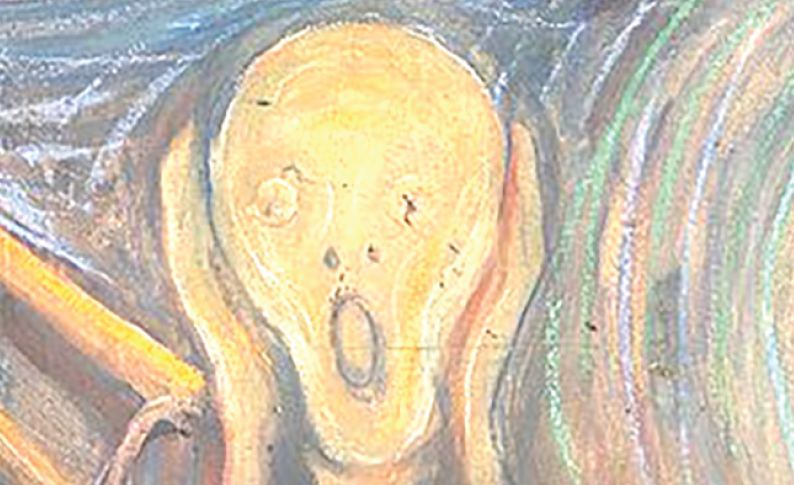
With Halloween only days away, we’re looking at the findings of Chapman University’s Survey of what scares us.
The survey
The goal of the Chapman University Survey of American Fears is to collect data annually on the fears, worries and concerns of Americans and how those fears are associated with other attitudes and behaviors. The survey asked more than 1,000 people across the country about 85 fears in a wide range of categories, from crime to natural disasters to ghosts, spiders and public speaking.
This is the 10th year of the survey, conducted for Chapman by SSRS and using a probability-based method. The survey was fielded in the spring over the internet. There were 1,008 respondents, with a margin of error of +/- 4%
‘Americans are becoming more afraid’
“This year, all of our Top 10 fears were expressed by more than half of Americans, and many were high throughout the rest of the survey,” said Christopher Bader, chair of Chapman’s sociology department. “This tells me Americans are becoming more afraid in general, about everything.”
The fear of corrupt government officials tops the list, as it has for the previous nine years. Americans are also very fearful about loved ones becoming seriously ill or dying, nuclear war, terrorism and running out of money.
Recent world events have stirred fears about war and terrorist attacks, given that six of the top concerns have to do with war or warfare, Bader said. The fear of running out of money moved from the 10th spot on the 2023 list to No. 6. Climate fear has been consistent year over year, with about 49% of respondents saying they were afraid or very afraid of the effects of climate change.
You can see the full list for 2024 here.
Chapman University professors have a book available, which was published by NYU Press “Fear Itself, The Causes and Consequences of Fear in America,” by Christopher D. Bader, Joseph O. Baker, L. Edward Day and Ann Gordon.
The authors say persistent fear negatively affects individuals’ decision-making abilities and causes anxiety, depression and poor physical health. Further, fear harms communities and society by corroding social trust and civic engagement. Yet politicians often effectively leverage fears to garner votes, and companies routinely market unnecessary products that promise protection from imagined or exaggerated harms.
Source: The Chapman University Survey of American Fears; Chapman’s Wilkinson College of Arts, Humanities and Social Sciences; Pew Research Center
